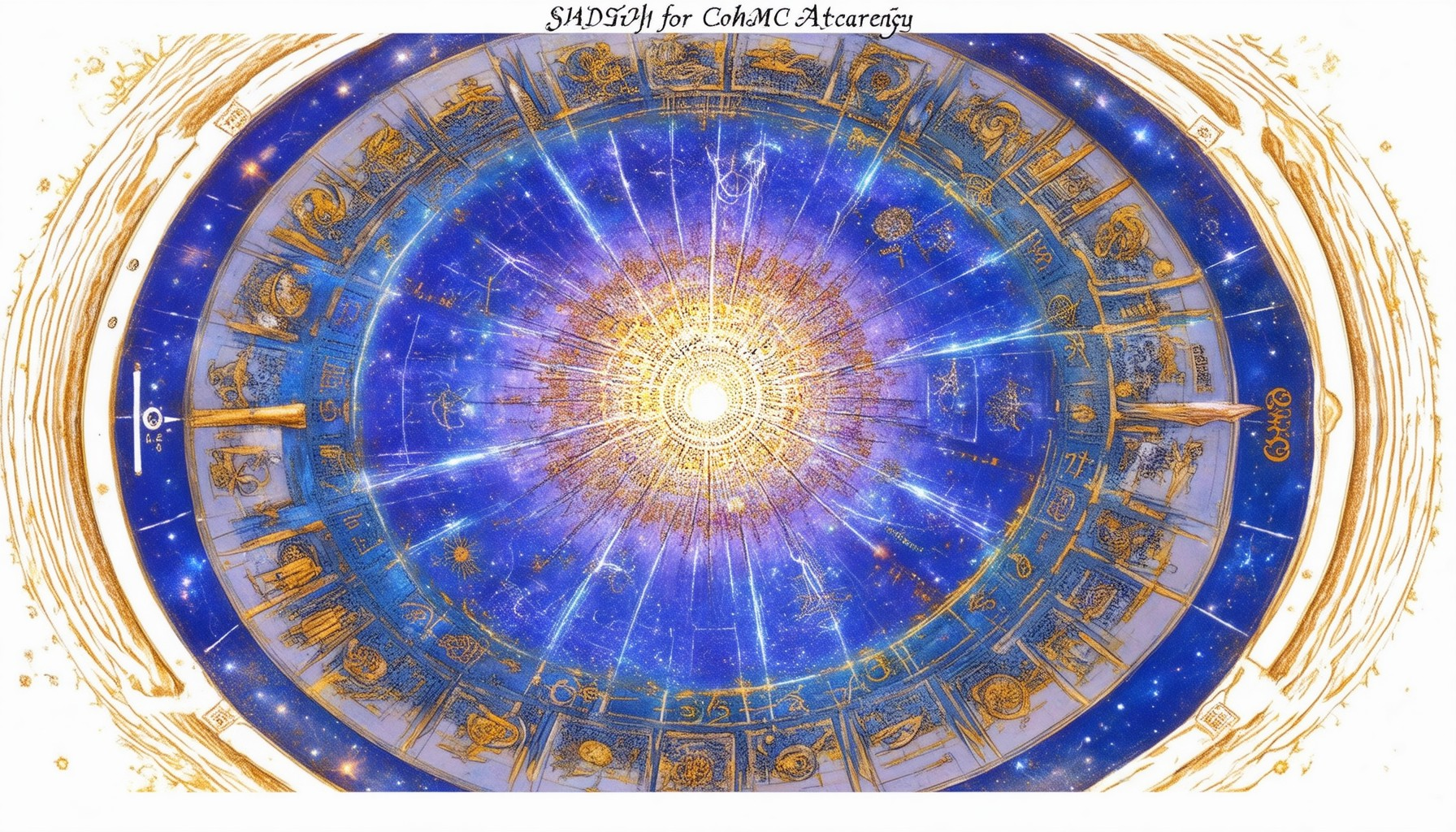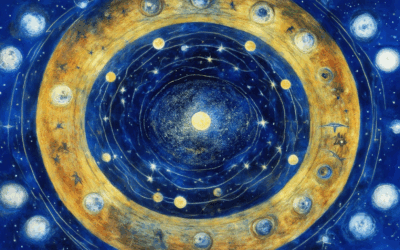Astrology has long been a fascinating lens through which we explore the mysteries of the universe, offering insights into the cosmic energies that shape our lives. At its core, astrology serves as a tool for cultivating cosmic awareness—a deeper connection to the universe’s rhythms and cycles. This awareness isn’t just about predicting the future but understanding the profound forces that influence our existence. From the interplay of cosmic energy to the rarest conjunctions, astrology reveals hidden patterns that resonate with our personal growth and spiritual evolution. In this exploration, we’ll delve into the thoughts of pioneers like Carl Jung, who saw astrology as a mirror reflecting the collective unconscious. We’ll also uncover the concept of cosmic astrology, distinguishing it from traditional practices, and examine the spiritual dimensions of cosmic beings. Ultimately, this journey will reveal how cosmic awareness shapes not just individual minds but entire cultures and societies, fostering harmony and understanding on a global scale.
Key Takeaways
- Cosmic Astrology Focuses on Collective Energy Shifts: Exploring beyond individual zodiac signs, cosmic astrology examines the impact of celestial events on collective energy and human life.
- Influence of Celestial Bodies on Humanity: Understanding how planets, stars, and galaxies shape human emotions, thoughts, and spirits through alignments and phases.
- Energy Alignment and Spiritual Growth: Cosmic alignments are seen as opportunities for spiritual awakening and personal transformation.
- Connection Between Cosmology and Human Events: Cosmic events are linked to significant historical and societal changes, offering insights into global trends.
- Importance of Intuition During Cosmic Activity: Trusting intuition is crucial during times of cosmic influence, aligning individuals with universal energy shifts.
- Criticism and Scientific Perspective: While popular, cosmic astrology faces skepticism, often viewed through psychological or cultural lenses rather than cosmic influence.
- Framework for Life’s Cyclic Nature: Cosmic astrology provides a unique lens to understand life’s cycles and the potential for collective transformation.

What is Cosmic Energy in Astrology?
Cosmic energy in astrology refers to the unseen forces and vibrations that influence human consciousness, emotions, and life experiences. These energies originate from celestial bodies such as planets, stars, and galactic alignments, shaping our individual and collective destinies.
Understanding Cosmic Energy
Cosmic energy operates beyond the physical realm, working through subtle energy channels that connect all living beings to the universe. It is often described as a form of prana, chi, or universal life force that flows through and around us, influencing our thoughts, actions, and relationships.
The Sources of Cosmic Energy
- Planetary Influence: Each planet in our solar system emits unique frequencies, affecting human behavior and life cycles. For instance, the Sun’s rays are known to boost vitality and creativity.
- Star Positions: The positions of stars and constellations play a significant role in determining personal zodiac signs and their associated traits.
- Galactic Alignments: Major cosmic events, such as equinoxes and solstices, impact global consciousness and cultural shifts.
The Influence of Cosmic Energy
Cosmic energy shapes our emotional states, intuition, and spiritual growth. It often manifests through synchronicities, déjà vu, and meaningful coincidences, guiding individuals toward their purpose and destiny.
Types of Cosmic Energy
- Prana: The vital life force energy associated with breath and bodily functions, influenced by cosmic rhythms.
- Chi: The Chinese concept of energy flow, aligned with cosmic currents that affect health and well-being.
- Universal Life Force: A limitless source of energy connecting all beings, embodying the essence of existence itself.
Harnessing Cosmic Energy
To align with cosmic energy, consider the following steps:
- Maintain harmony with nature through mindful living and sustainable practices.
- Practice meditation to attune your energy field to cosmic frequencies.
- Seek guidance from experienced astrologers or spiritual teachers to navigate life’s challenges.
- Stay informed about celestial events and their potential impacts on your life.
Balancing Cosmic Energy
Understanding and balancing cosmic energy is essential for personal growth and global harmony. By embracing the wisdom of cosmic forces, we can manifest positive changes and contribute to a more enlightened world.
The Rarest Conjunction in Astrology
The rarest conjunction in astrology is considered to be the Great Conjunction between the planets Jupiter and Saturn. These alignments occur approximately every 20 years when Jupiter overtakes Saturn in its orbit, making them the most significant and rarest conjunctions visible to the naked eye, excluding Uranus and Neptune.
While other planetary conjunctions, such as those involving Mercury, Venus, Mars, Uranus, and Neptune, do occur, they are even rarer and less frequently observed due to the vast distances and longer orbital periods of these outer planets. However, the Great Conjunction between Jupiter and Saturn remains the most notable and widely recognized rare conjunction in astrology.
Learn more about planetary conjunctions and their astrological significance.

Carl Jung’s Beliefs on Astrology
Carl Jung, the renowned Swiss psychologist, held a unique perspective on astrology. He viewed it as a tool for gaining psychological insight, often complementing his work in dream analysis and personality assessment. Jung believed that astrological charts could offer meaningful insights into a person’s psyche, helping individuals better understand their motivations, strengths, and potential challenges.
Jung was particularly interested in the correspondence between zodiac signs and personality traits. He often analyzed the traits associated with each zodiac sign, such as Aries’ boldness, Taurus’ stubbornness, and Gemini’s curiosity. This approach allowed him to explore how celestial influences might interact with human behavior.
While Jung didn’t endorse astrology as a scientific truth, he recognized its symbolic and interpretive value. He used it alongside other analytical tools to help clients gain self-awareness and personal growth. His interest in astrology extended to studying how planetary alignments might reflect broader cultural shifts, though he remained cautious about making definitive claims.
Blood Moon Prophecy explores similar themes, offering insights into celestial events and their potential impact on individuals and society. For deeper understanding of Jung’s psychological approaches, consider visiting American Psychological Association .
By blending astrology with his expertise in psychology, Jung created a holistic framework for exploring human behavior, showing how celestial patterns might mirror internal states.

What is the Meaning of Cosmic Astrology?
Cosmic astrology is a unique branch of astrology that focuses on the influence of celestial events and alignments on human affairs and personal development. Unlike traditional astrology, which often centers on individual zodiac signs, cosmic astrology takes a broader approach, examining the collective energy shifts brought about by phenomena like eclipses, planetary alignments, and meteoric events.
The Core Concepts of Cosmic Astrology
- Celestial Bodies and Their Influence: Cosmic astrology considers how planets, stars, and galaxies interact with Earth and influence our emotional, mental, and spiritual states. For instance, the moon’s phases are believed to impact tides and human behavior, while planetary alignments are thought to create energetic resonances.
- Energy Alignment: This practice posits that certain cosmic configurations can align human consciousness and Earth’s energy fields, fostering personal growth and collective awareness. Such alignments are often seen as opportunities for spiritual awakening and transformation.
- Lunar Cycles and Spiritual Growth: The moon’s cycle is frequently interpreted as a metaphor for human emotions and life cycles. Proponents believe that understanding these cycles can provide insight into personal development and life purpose.
The Connection Between Cosmology and Human Affairs
Cosmic astrology suggests that there’s a deep interconnectedness between cosmic events and terrestrial happenings. For example, solar eclipses are often linked to significant historical events, while lunar eclipses are thought to carry messages from the universe about personal and societal changes.
Examples of Cosmic Alignments and Their Interpretations
- Planetary Conjunctions: When two or more planets align closely in the sky, cosmic astrology interprets this as a time of increased spiritual potential and transformative energy. Such alignments are believed to influence global events and individual life paths.
- Meteorite Falls and Celestial Signs: The arrival of meteorites is sometimes linked to cosmic warnings or messages, guiding humanity toward self-reflection and change. These events are seen as reminders of the universe’s influence on Earth.
- The Role of Intuition: Practitioners of cosmic astrology emphasize the importance of trusting intuition during times of significant cosmic activity. They believe that heightened intuition aligns individuals with the universal energy shifts occurring around them.
Criticism and Skepticism
While cosmic astrology has gained popularity among those seeking spiritual guidance, it remains controversial within the scientific community. Critics argue that its claims lack empirical evidence and are better understood through psychological or cultural lenses rather than cosmic influence.
Conclusion
Cosmic astrology offers a unique perspective on the relationship between the cosmos and human existence. By exploring celestial events and their perceived impacts on Earth and humanity, it provides a framework for understanding life’s cyclical nature and the potential for personal and collective transformation.
“`html
What is Cosmic Awareness?
Cosmic awareness refers to the state of having an extensive understanding of the universe, its workings, and the various phenomena that occur on both a galactic and universal scale. It encompasses knowledge about the origins of existence, the dynamics of celestial bodies, and the fundamental laws that govern the cosmos.
- The ability to comprehend the vast expanse of space and time, including the movements of planets, stars, galaxies, and black holes.
- Understanding the origins of life and the potential for intelligent life across the universe.
- Recognizing patterns in cosmic events, such as eclipses, meteor showers, and supernovae.
- Being aware of potential threats to humanity, such as asteroid impacts, solar storms, and existential risks.
- Knowing about the interconnectedness of all things in the universe and the impact human actions can have on a global scale.
Examples of Cosmic Awareness in Media and History
Cosmic awareness has been explored extensively in science fiction literature, films, and philosophical debates. Some notable examples include:
- The concept of “cosmic consciousness” in works by authors like Isaac Asimov and Carl Sagan.
- The Mayan and Incan understanding of celestial cycles and their influence on human societies.
- Modern scientific theories like the Big Bang theory and the search for extraterrestrial intelligence (SETI).
Benefits of Cosmic Awareness
- Preparedness for future challenges, whether they be natural disasters, technological advancements, or existential threats.
- Harmony with the natural world and a deeper appreciation for the interconnectedness of all life forms.
- Inspiration for creative endeavors, art, and philosophy, as it often leads to questions about purpose and meaning.
Challenges of Cosmic Awareness
- The overwhelming complexity of the universe, which can lead to feelings of insignificance or anxiety.
- Dealing with the ethical implications of having such vast knowledge, such as genetic engineering or artificial intelligence.
- The potential for misuse of cosmic knowledge by individuals or organizations with harmful intentions.
Cosmic awareness is a profound concept that continues to inspire scientists, thinkers, and artists. By studying the universe and our place within it, we gain a greater understanding of ourselves and our responsibilities as stewards of the planet.
“`

What is a Cosmic Person Spiritually?
A cosmic person represents the essence of the divine, embodying the unity of all existence in many spiritual traditions. This concept often transcends cultural boundaries, appearing in various forms across different philosophies. Here’s a deeper exploration:
The cosmic person is seen as the manifestation of the ultimate reality, often referred to as Brahman in Hinduism or the Great Spirit in Indigenous traditions. This entity is considered both omnipresent and transcendent, existing within and beyond the material world.
Significance and Symbolism
- The cosmic person serves as a bridge between the sacred and the mundane, representing the divine within every living being.
- It symbolizes the interconnectedness of all life, emphasizing harmony and balance in the universe.
- This concept encourages individuals to seek enlightenment through self-realization, recognizing their true nature as part of the cosmic whole.
- Practices such as meditation and yoga aim to align oneself with the cosmic energy, fostering peace and understanding.
Cosmic Connection
The cosmic person is often associated with celestial events, such as the blood moon, which are believed to hold spiritual significance. These moments are seen as opportunities for introspection and connection, aligning one’s energies with the universal force.
Conclusion
A cosmic person is a profound spiritual concept that underscores the unity of all existence. By embracing this perspective, individuals can find meaning and purpose, working towards a harmonious existence with the universe and its inhabitants.





0 Comments